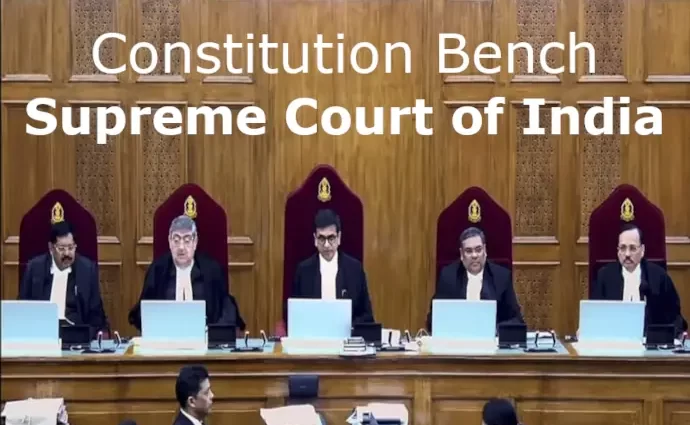The Supreme Court of India has finally delivered its judgement on the abrogation of Articles 370 and 35A of the Constitution of India. Much to the chagrin of the Opposition parties including the Congress, NC, PDP and the AIMIM among others and the Left Liberal cabal asking for the restoration of the Articles, the court has ruled that the abrogation was constitutionally valid and the processes followed had no legal or technical flaws.
The landmark verdict affirmed the revocation of the special status previously held by Jammu and Kashmir under Article 370 of the Indian Constitution.
The court also ruled that the state of Jammu and Kashmir did not possess sovereignty, which was always India’s domain as a sovereign nation. The verdict also stated that the requirement of state government’s consent was validly met in the process while it was under the president’s rule.
The court also confirmed its view that the Article 370 was in fact only ‘temporary’ in nature.
The only relief, if it can be seen as relief, to those Opposing the abrogation, given by the court is that the government has been asked to hold elections in the state by September 30, 2024, subject to certain conditions of course and restore the status of statehood as soon as possible.
The verdict was delivered by a five-judge Constitution bench presided over by Chief Justice of India DY Chandrachud and comprising Justices SK Kaul, Sanjeev Khanna, BR Gavai, and Surya Kant.
Key takeaways from the Article 370 Supreme Court verdict:
Absence of sovereignty in Jammu and Kashmir did not retain sovereignty after its accession by India:
The court said the state of Jammu and Kashmir surrendered its sovereignty to India upon joining the Union of India. It highlighted the absence of any reference to sovereignty in the J&K Constitution. Calling it asymmetric federalism, the court said Articles 1 and 370 of the Indian Constitution substantiated J&K’s integration with India.
Article 370 – Temporary: Putting all future controversies and challenges to rest, the court has ruled that the Article 370 was a transitory provision, expressing its considered view that its revocation didn’t hinge on the J&K Constituent Assembly’s recommendations.
No requirement for State Government’s concurrence: The court has held that the President’s decision on special circumstances under Article 370 couldn’t be challenged. It also validated the application of the entire Indian Constitution to J&K through Article 370(1)(d) in one go, bypassing the need for the State government’s concurrence.
Non-adjudication of J&K Reorganization Act 2019 validity: The court upheld the reorganization of Ladakh into a UT but did not rule on the J&K reorganization into Union Territories’. The court took that position on the Solicitor General’s submission that the status of the UT for J&K was only temporary.
Similar Posts by The Author:
- The Untold story of the ANZAC-India friendship
- VHP Australia brings Hindus together to work toward ‘growing and thriving Australia’
- Australia Post – new performance standards from 15 April
- Premier’s department fighting the release of SECRET hotel quarantine documents
- Vic Gov funds 13 programs that help international Students

